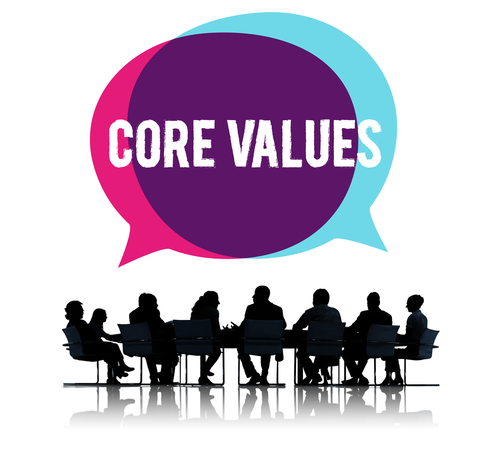Each September, PRSA recognizes Public Relations Ethics Month, supported by programs presented by the PRSA Board of Ethics and Professional Standards (BEPS). This year’s theme, Public Relations Ethics: Strengthening Our Core, guides a special focus on the six core values highlighted in the PRSA Code of Ethics. Please join the discussion through blog posts, webinars and Twitter Chats (#PREthics) scheduled throughout the month of September and consider the content a catalyst for integrating ethics and ethical practice into your daily communication activities.
In recognition of Public Relations Ethics Month, the PRSA Board of Ethics and Professional Standards (BEPS) decided to focus this year on our six core values, the “fundamental beliefs that guide our behaviors and decision-making process,” which are the foundation of our code of ethics.
One of those values is expertise, meaning our specialized knowledge and experience. This value requires that we make time for professional development, research and education. While PR professionals are expected to have excellent writing, design and presentation skills, I also believe that this value requires expertise in our specific industries.
In support of this view, Meng et al. wrote in the Journal of Public Relations Research in 2012 that to be an “excellent leader in public relations, one must know the organization’s business and its environment, understand the decision makers and decision-making process in the organization, and be proactive in that decision-making process.”
Amy Barnes, APR, and I just completed 58 interviews with members of the PRSA College of Fellows and Arthur W. Page Society in preparation for a book on PR ethics. Some of the senior executives discussed how they had to provide ethics counsel regarding decisions with an economic impact of $50 million up to $150 million. In those situations, communication skills alone are insufficient for making a strong argument or “business case” for doing the right thing.
Some experts have previously reported on employers’ dissatisfaction with the business literacy skills of beginning PR practitioners (DiStaso et al., 2009; Ragas, Uysal & Culp, 2015).
There are several ways we can improve our business and industry expertise:
• Take advantage of free PRSA webinars. As members of PRSA, there are live and on-demand webinars that we can participate in for free on a weekly or monthly basis. We just have to make the time to invest in our own personal growth. For example, this month BEPS is sponsoring the webinar “The Ethical Expectations of Leadership.”
• Pursue the APR. Many senior executives we interviewed pointed to the APR as a turning point in their careers. Some of the core competencies tested through the process include business literacy, organizational structure, leadership skills and problem solving.
• Consider obtaining an advanced degree. Some PR professionals have pursued an MBA or other master’s degrees to improve their management skills. I recently talked to one senior executive who said she improved her ability to read financial reports by doing so. She said, “I’m just as good today with numbers as I am with words.”
• Read. PR professionals also can improve their business literacy by reading industry trade publications or books. One place to start is “Business Essentials for Strategic Communicators” by Ron Culp and Matt Ragas. Others include “The Portable MBA” and Business Expert Press book series.
• Leave the comfort of your office. A division president working for an energy company once told me about how his company requires public affairs staff to actually spend time with their front line employees. He said:
“If you come to work with us in public affairs, we take the first year with you and we just put you through the ringer. You’ve got work boots; you’re going to have steel toe boots; you’re going to have a hard hat. You’re going to be in the field… so that when you’re standing in front of a camera, and someone sticks a mic in front of you … you don’t do this – “uh, uh.” (Neill, 2012, p. 84-85)
I recently talked to a former CCO who chose to spend time working the counter in a fast-food restaurant to better understand the experiences of their employees.
• Build relationships with colleagues in other departments. Through in-depth interviews for a new book, senior executives told us about how early in their careers they would get to know colleagues in other departments in order to learn more about their areas of expertise such as legal and finance.
Obviously, these six recommendations are not meant to be exhaustive. There are other ways that PR professionals can improve their business literacy and expertise. The point is to make it a priority. Before we can begin to provide ethics counsel, we have to understand the business implications of our recommendations. That will allow us to make the “business case” for doing the right thing.
Dr. Marlene S. Neill is an assistant professor at the Baylor University in the Department of Journalism, Public Relations & New Media. Her research focuses on public relations management, ethics and integrated communication. She has published research in the Journal of Mass Media Ethics, Public Relations Review and the Journal of Communication Management. She is a member of the PRSA Board of Ethics & Professional Standards.








Great piece, Marlene! Taking the time to invest in yourself is an easy step to skip in our busy industry, but this piece provides insight into how important it is. Not only are you improving your own ethical core, but you are setting a standard for others in the industry. – Hope Runyan, Platform Magazine writer/ editor
Thank you for the feedback, Hope. Yes, it can be difficult to make time for these activities, but we need to make them a priority.
Thanks for writing this! I’m still a student but I love reading great advice like this!
[…] on others According to PRSA, in order to get a comprehensive glance into the different aspects of a business, corporate […]